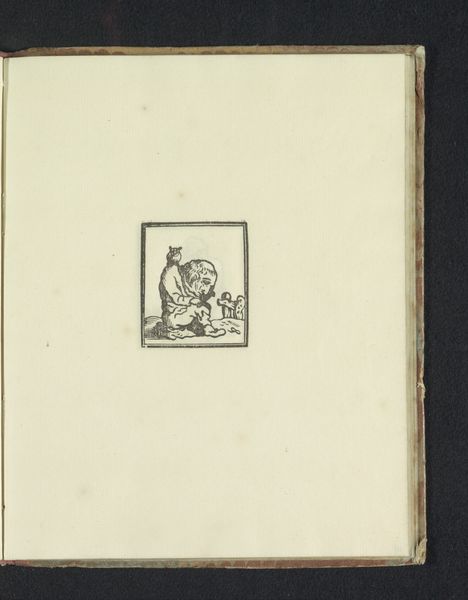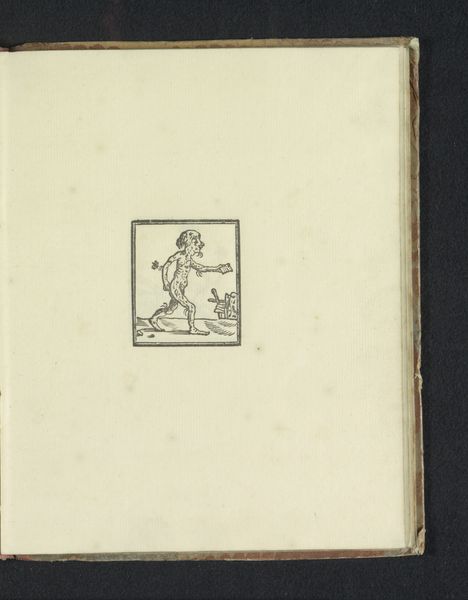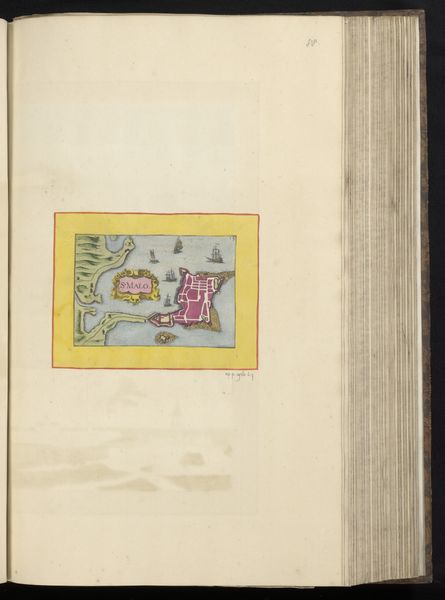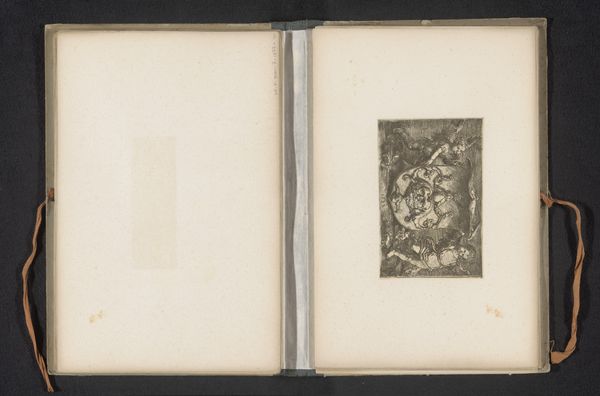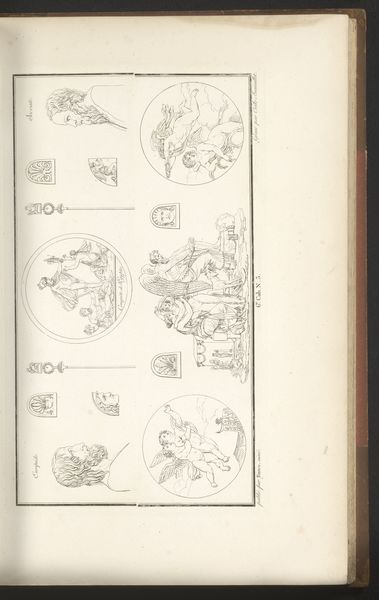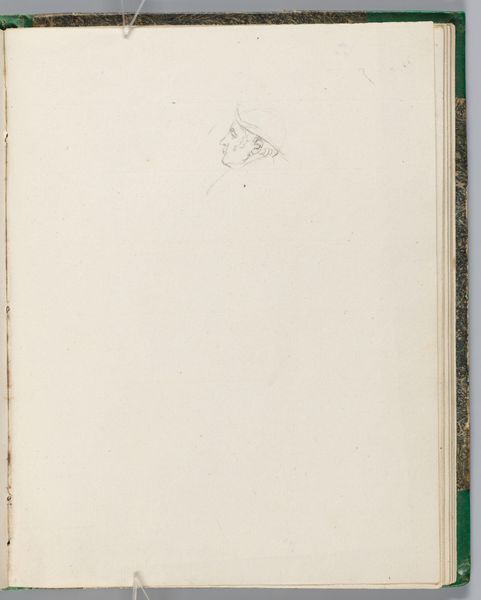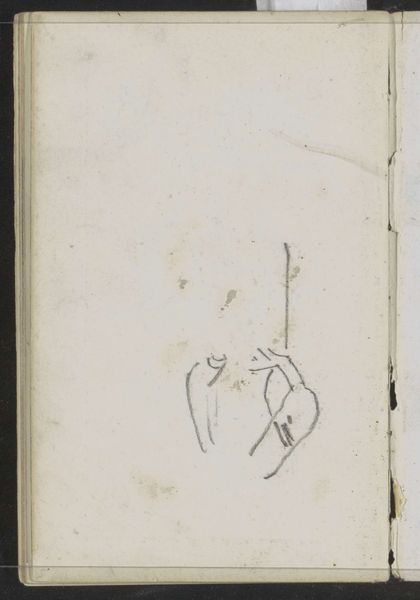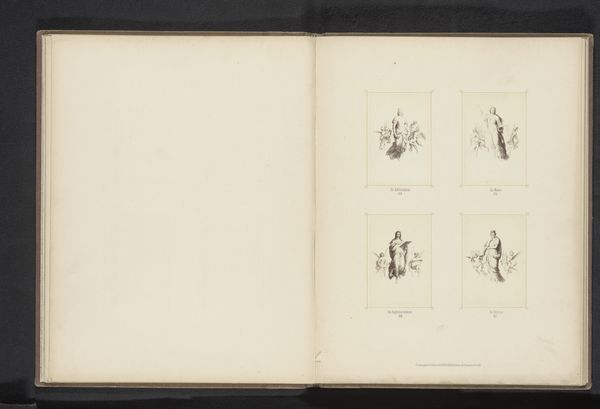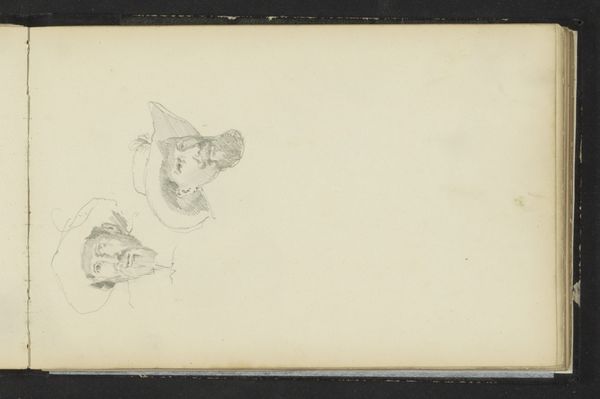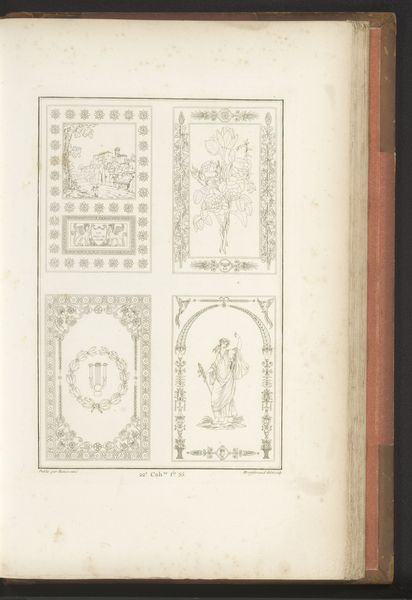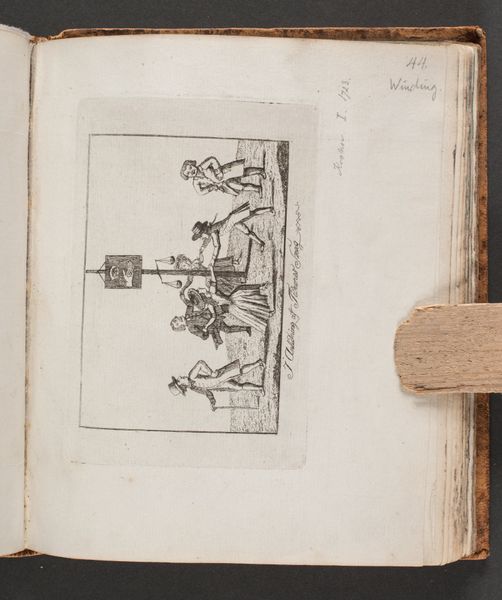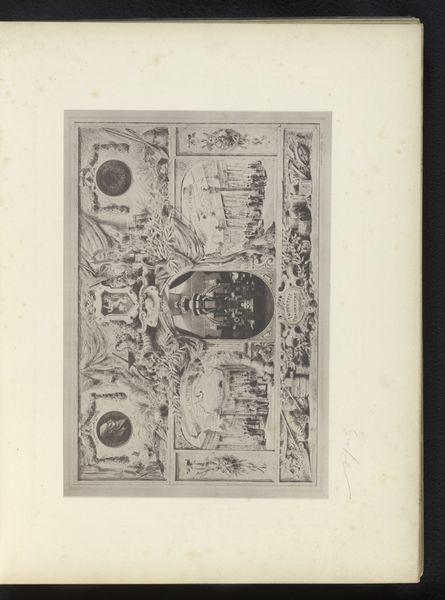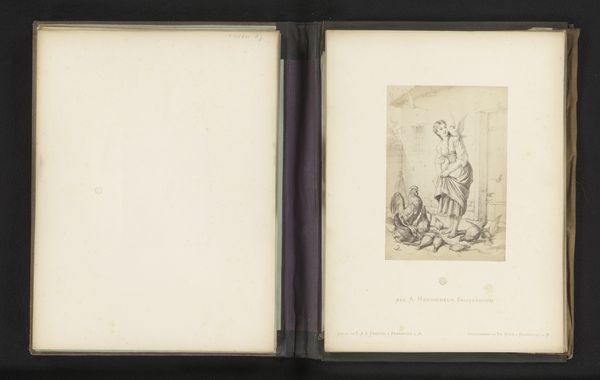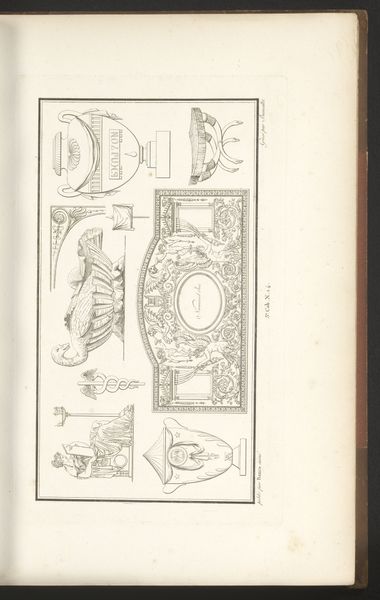
drawing, paper, ink, pen
#
portrait
#
drawing
#
aged paper
#
narrative-art
#
sketch book
#
hand drawn type
#
paper
#
personal sketchbook
#
ink
#
folk-art
#
ink colored
#
pen and pencil
#
pen work
#
sketchbook drawing
#
pen
#
genre-painting
#
storyboard and sketchbook work
#
sketchbook art
#
miniature
Dimensions: height 49 mm, width 42 mm, height 195 mm, width 155 mm
Copyright: Rijks Museum: Open Domain
Curator: Here we have a drawing called “Jan Hen” made by Isaac Vincentsz. van der Vinne, dating from around 1731 to 1732. It’s executed in ink on paper. Editor: What a strange little fellow. He appears to be something of a bird-man hybrid, doesn’t he? There's a certain whimsical charm, yet something feels slightly unsettling about his posture. Curator: Indeed. As an ink drawing from the early 18th century, it exemplifies the kind of artisanal production reliant on locally sourced materials – the very paper and ink available determined the texture and visual possibilities. Editor: The materiality is key. Note the contrast between the clean white page and the precise, controlled lines of ink. The figure almost appears like a sharply defined woodcut against its background, offering an immediate, graphic punch. The line quality communicates a unique tension and rhythm to my eye. Curator: Exactly. The sketch probably formed part of a personal sketchbook. Sketchbooks served a function as sites of experimentation and concept development. Van der Vinne likely intended this work as an iterative step toward a more finished work for his patrons. The labour involved underscores a culture reliant on artisanal rather than mass production. Editor: Yet the sketch possesses an aesthetic value all its own. Its minimal presentation amplifies the subject, placing the emphasis directly on line and form, even on the subtle texture of the aged paper, doesn't it? Curator: I’d argue we also see it as part of the evolution of narrative-art from folk art, demonstrating themes pertinent to genre painting even within the intimacy of a sketchbook format. Editor: Ultimately, this study demonstrates the visual power achieved through minimal form, which also provides intimate, visual connection between subject, page, viewer, and moment of inception. Curator: And considered materially, it speaks to the artist's labor and to a moment in history when artistry relied wholly on skillful manipulation of materials and social structures supporting its commission.
Comments
No comments
Be the first to comment and join the conversation on the ultimate creative platform.
